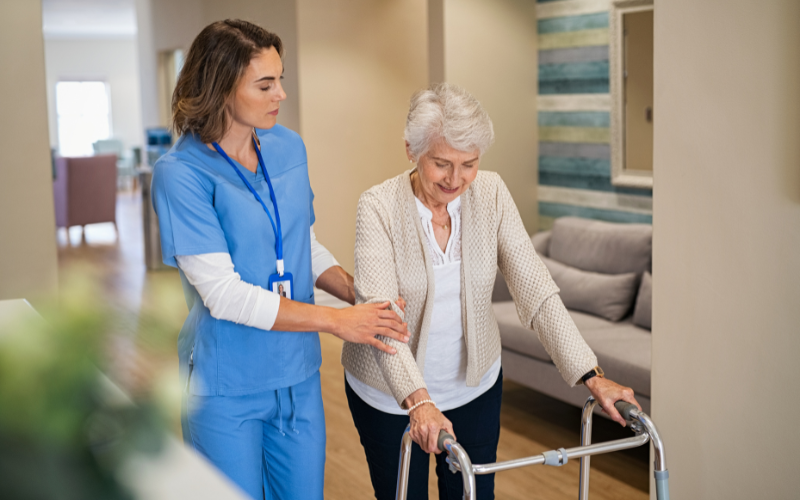
Incontinence affects a senior’s quality of life. The embarrassment that results from poor bladder control may cause older adults to intentionally avoid social and recreational activities. Incontinence issues in the elderly, however, can be effectively managed in the following ways.
What is incontinence?
Urinary incontinence occurs more commonly in people as they age. However, it is not an inevitable part of growing older. The condition may be defined as leaking urine by accident. Overactive bladder, as it is otherwise known, can affect aging men and, especially, women.
The bladder is a part of the urinary system, along with the kidneys, ureters, and urethra. Bladder muscles tighten to push urine through the urethra. Urine flows out of the body as the muscles around the urethra simultaneously relax. But improperly working muscles around the bladder cause urine leaks.
What causes incontinence?
The muscles near the bladder may fail to work properly for numerous reasons. Short-term urinary incontinence may be caused by certain medications, for instance. Constipation, urinary tract infections, and vaginal infections or irritation are also responsible for occasional urinary incontinence.
Long-term incontinence may be caused by a variety of factors. Overactive or weakened bladder muscles and pelvic organ prolapse (which occurs when pelvic organs shift out of place and cause the bladder and urethra to malfunction) are often behind urinary incontinence.
Chronic medical conditions can damage the nerves that control the bladder. Parkinson’s disease, diabetes, and multiple sclerosis are examples of such diseases. Arthritis, while not directly affecting urination, can make it difficult for the elderly to reach the bathroom in time.
In men, most cases of urinary incontinence have their origins in the prostate gland. When the prostate gland becomes painfully inflamed, called prostatitis, incontinence can occur. Likewise, an enlarged prostate gland can cause incontinence. Plus, surgery might injure or damage nerves or muscles.
How do caregivers help seniors manage incontinence?
Seniors with dementia are known to suffer from poor bladder control. Due to how Alzheimer’s damages the brain, dementia patients may not realize they need to urinate; they may forget to go to the bathroom; or they may be too disoriented to be able to find the toilet.
Caregivers can help their elderly loved ones manage incontinence by providing them with regular bathroom breaks. Avoid serving caffeinated beverages, like tea, soda, or coffee, as these drinks increase urination—however, do not limit the senior’s daily intake of water.
Remove clutter from the hallways leading to the bathroom so that obstacles do not delay the senior. Keep a light on in the hallways at all times. Caregivers should provide incontinent seniors with absorbent briefs that are easily removable or undergarments that are easy to pull on and take off.
Bladder control training is also recommended for older adults with incontinent issues. Performing pelvic muscle exercises, also known as Kegel exercises, strengthens the muscles that control the bladder. Strong bladder muscles help hold urine and prevent seniors from leaking urine at inopportune times.
Controlling strong urges to urinate is an effective means to manage incontinence. Urgency suppression allows seniors to reach the bathroom in time. Distractions, like taking extended, relaxing breaths and squeezing the pelvic floor muscles, help older adults avoid focusing on their need to urinate.
Caregivers are also advised to schedule bathroom breaks to manage seniors’ urinary incontinence. Time voiding effectively controls the bladder. Caregivers might establish a toilet run every hour, for instance. Gradually, the caregiver can increase the amount of time between bathroom breaks.
Medical treatments reduce bladder control issues. Medications are prescribed for overactive bladder; however, some drugs are linked with a higher risk for cognitive decline in seniors. Or, a physician can inject a bulking cream that thickens the area around the urethra and reduces stress incontinence.
Catheters are medical devices that drain urine from the bladder. Other devices, like a urethral insert, help prevent leakages. Electrical nerve stimulation can control the bladder’s reflexes by sending mild electrical currents to the nerves surrounding the bladder. Surgery is useful for curing incontinence.
Caregivers are encouraged to help their loved ones make lifestyle changes to improve urinary incontinence problems. Overweight seniors are urged to lose weight. Quitting smoking and avoiding alcohol also help. Choose water instead of other beverages, and limit drinks before bedtime.
Serve the senior the recommended intake of fiber to reduce constipation and prevent incontinence issues. Monitor the care recipient so he does not lift heavy objects. If urine continues to sporadically leak, the caregiver is advised to introduce bladder control products.
Disposable briefs or underwear are helpful when urine occasionally leaks. If urine odors are problematic, try urine deodorizing pills. It’s important for caregivers to also protect the home and keep it hygienic; investing in furniture pads can achieve this end.
Incontinence Care from Assisting Hands

Older adults feel less embarrassed by incontinence issues when they are fully supported by the professional caregivers at Assisting Hands Home Care. We understand the daily challenges seniors face and are prepared to help them age gracefully and with dignity.
Elder care services from our reputable home care agency are designed to support seniors with the activities of daily living. Caregivers are instrumental in helping older people with hygiene tasks, meal preparation, grocery shopping, transportation, medication reminders, and light housekeeping.
Additionally, we serve as pleasant companions, keeping loneliness and social isolation at bay. When the senior moves around the home, we provide guidance and support. Caregivers are also tasked with removing clutter and other hazards from the walkways around the home.
Assisting Hands Home Care provides a range of flexible senior care services. We offer overnight care, compassionate dementia care, post-hospitalization care, and respite care. Seniors’ needs are evaluated, and a customized care plan is developed to fulfill all non-medical care needs.
Seniors living in Franklin, Wisconsin, and the neighboring areas receive dedicated, personalized support when they choose Assisting Hands Home Care. Families are encouraged to schedule a complimentary in-home consult and give their elderly loved one the gift of quality senior home care.















